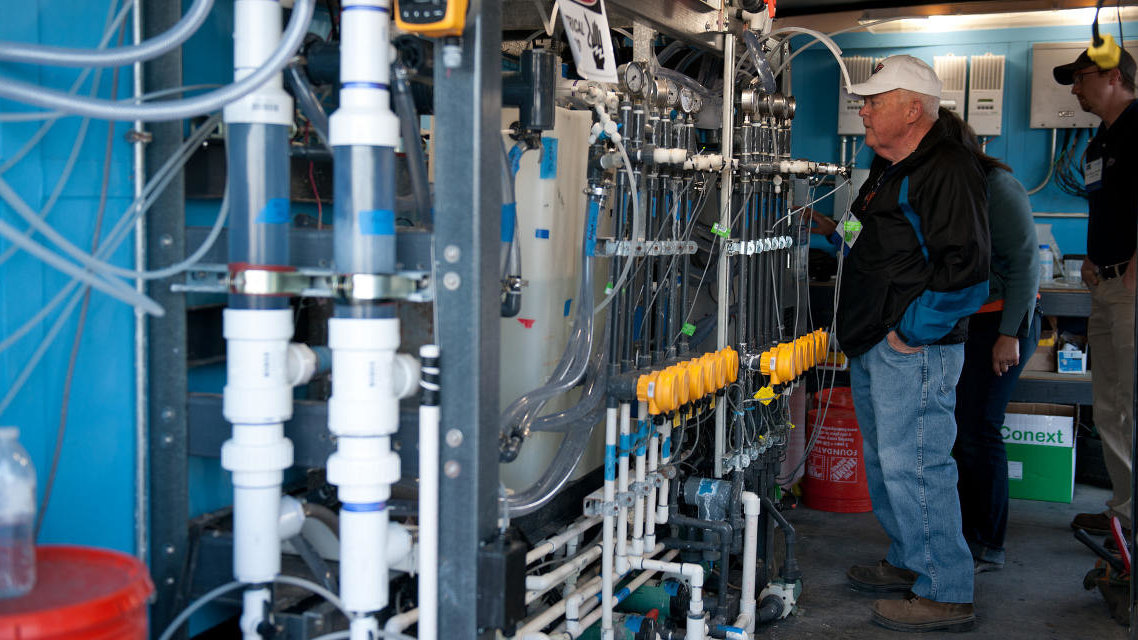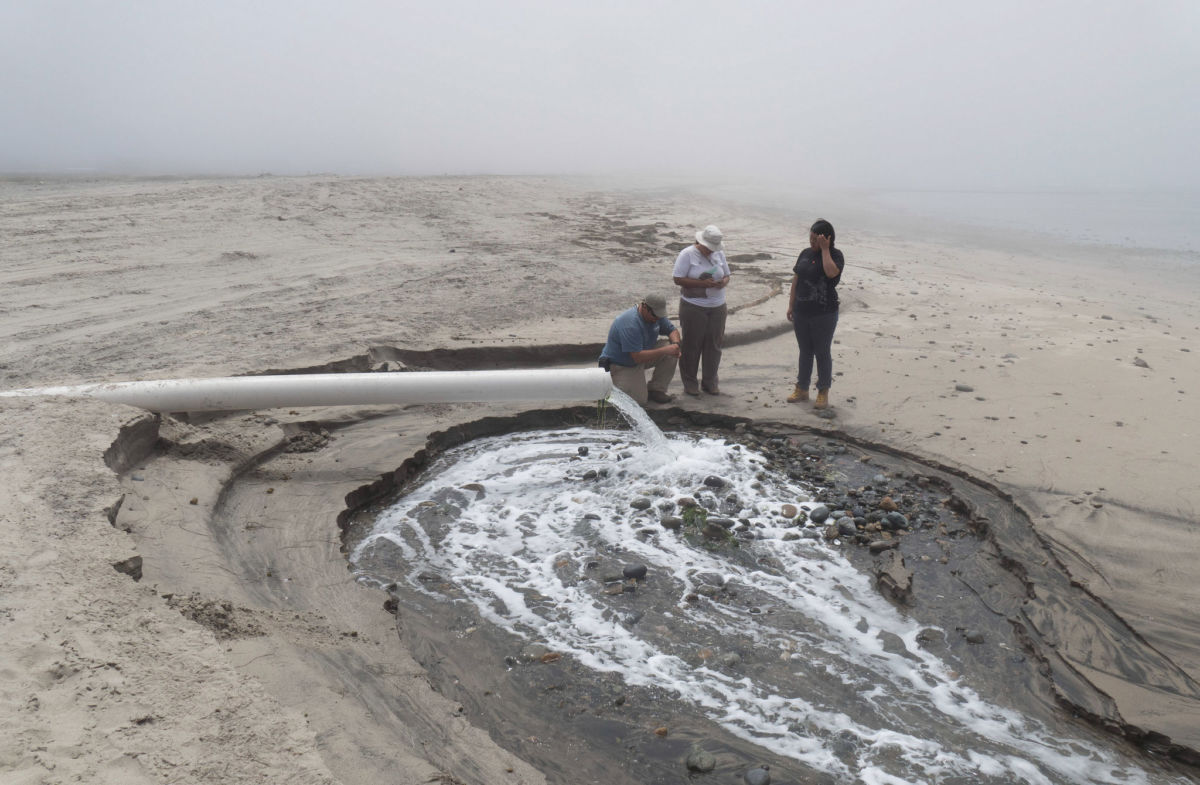The rise of desalination plants, now almost 16,000 worldwide, has led to a glut of brine waste — much of which is dumped into oceans, which can raise salinity to dangerous levels and put toxic chemicals in the marine environment threatening ocean life, according to a new study.
The study is the first to update estimates of desalination plants’ discharge since the sharp increase in facilities over the past few decades and suggests there is an urgent need to find ways to deal with the huge amount of waste created at the plants, which remove salts from water in areas where freshwater is scarce.
“Improved brine management strategies are required to limit the negative environmental impacts and reduce economic cost of disposal, thereby stimulating further developments in desalination facilities to safeguard water supplies,” the authors wrote in the study, published today in Science of the Total Environment.
The researchers found desalination plants are discharging more than 37 billion gallons of chemical-laden brine every day, which is a 50 percent increase over previous estimates. The authors note that amount is enough in a year to cover Florida under one foot of brine.
Most desalination plants are in the Middle East and Africa and the paper found just four countries — Saudi Arabia, the UAE, Kuwait and Qatar — are responsible for about 55 percent of the world’ total brine waste.
Waste disposal largely depends on where a plant is located, however, most are near an ocean: almost 80 percent of global brine is produced within six miles of an ocean. When brine is sent back to the ocean it can harm aquatic life by sharply raising the salinity level of the water (brine is about twice as salty as seawater), and can carry harmful chemicals (such as copper and chlorine) that the brine picks up in the desalination process.

“Brine underflows deplete dissolved oxygen in the receiving waters,” lead author Edward Jones, a researcher at Wageningen University in the Netherlands, said in a statement. “High salinity and reduced dissolved oxygen levels can have profound impacts on benthic organisms, which can translate into ecological effects observable throughout the food chain.”
The study recognizes the important role desalination plays in getting people water.
“Around 1.5 to 2 billion people currently live in areas of physical water scarcity, where water resources are insufficient to meet water demands, at least during part of the year. Around half a billion people experience water scarcity year-round,” Vladimir Smakhtin, the assistant director of United Nations University’s Institute for Water, Environment and Health, said in a statement.
“There is an urgent need to make desalination technologies more affordable and extend them to low-income and lower-middle income countries.”
Brine waste does not have to be all bad news — Smakhtin and colleagues point to potential economic opportunities in “mining” it. With bolstered technology, metals and salts — such as sodium, magnesium, calcium, potassium, bromine, boron, strontium, lithium, rubidium and uranium — could be extracted from the brine and sold for industrial and agricultural uses.
“There is a need to translate such research and convert an environmental problem into an economic opportunity,” co-author Manzoor Qadir, assistant director of United Nations University’s Institute for Water, Environment and Health, said in a statement.
“This is particularly important in countries producing large volumes of brine with relatively low efficiencies, such as Saudi Arabia, UAE, Kuwait and Qatar.”
Our most important fundraising appeal of the year
December is the most critical time of year for Truthout, because our nonprofit news is funded almost entirely by individual donations from readers like you. So before you navigate away, we ask that you take just a second to support Truthout with a tax-deductible donation.
This year is a little different. We are up against a far-reaching, wide-scale attack on press freedom coming from the Trump administration. 2025 was a year of frightening censorship, news industry corporate consolidation, and worsening financial conditions for progressive nonprofits across the board.
We can only resist Trump’s agenda by cultivating a strong base of support. The right-wing mediasphere is funded comfortably by billionaire owners and venture capitalist philanthropists. At Truthout, we have you.
We’ve set an ambitious target for our year-end campaign — a goal of $250,000 to keep up our fight against authoritarianism in 2026. Please take a meaningful action in this fight: make a one-time or monthly donation to Truthout before December 31. If you have the means, please dig deep.
